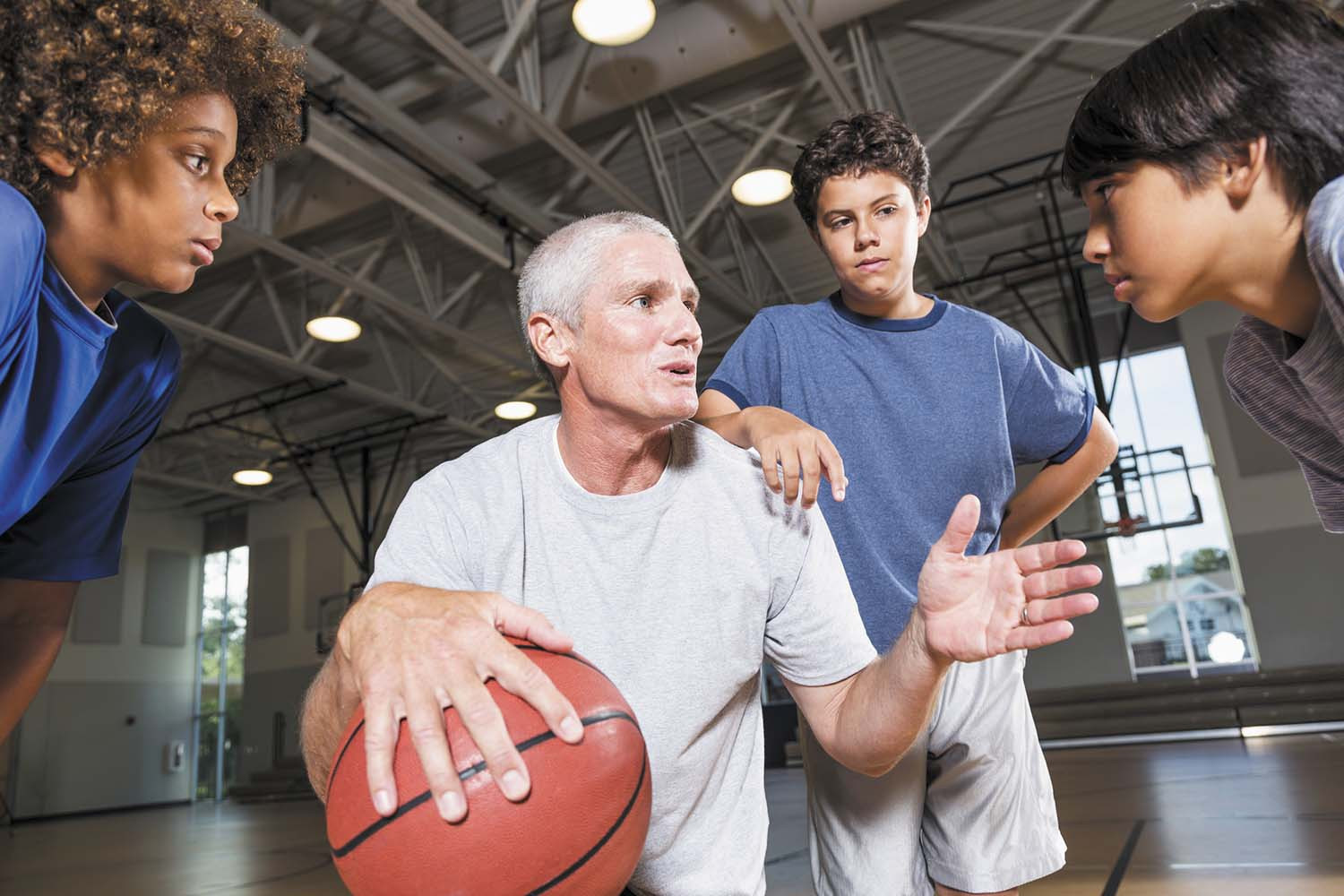
5 timeless habits for better health

What are the symptoms of prostate cancer?

Is your breakfast cereal healthy?

When pain signals an emergency: Symptoms you should never ignore

Does exercise give you energy?

Acupuncture for pain relief: How it works and what to expect

How to avoid jet lag: Tips for staying alert when you travel

Biofeedback therapy: How it works and how it can help relieve pain

Best vitamins and minerals for energy

Should you take probiotics with antibiotics?
Staying Healthy Archive
Articles
5 steps to long-lasting independent living
Here's how to maintain your current active lifestyle.
Older adults want to enjoy their independent living as long as possible. Yet this can become a challenge as people face more health issues.
"Most life changes that cause older adults to lose some or all of their independence occur either gradually or suddenly," says Dr. Jennifer Rhodes-Kropf, a primary care geriatrician at Harvard-affiliated Hebrew SeniorLife's Center Communities of Brookline, Mass. "You need to stay on top of critical areas that can jeopardize your health and lifestyle."
Practicing healthy habits may help people live disease-free longer
Research we're watching
Sticking to certain healthy lifestyle habits at midlife could add disease-free years to your life, according to a study from the Harvard T.H. Chan School of Public Health. Study authors found that 50-year-old women who maintained five healthy habits — exercising at least 30 minutes a day, following a healthy diet, maintaining a body mass index in the normal range, having no more than one serving of alcohol a day, and not smoking — lived on average 10.7 more years free of diseases, including diabetes, cardiovascular disease, and cancer, compared with initially healthy women who practiced none of those habits at age 50. Their findings, published online January 8 by BMJ, were based on 34 years of data from the Nurses' Health Study and the Health Professionals Follow-up Study, which involved more than 73,000 women and some 38,000 men.
Image: © kitzcorner/Getty Images
Are artificial sweeteners healthy?
On call
Q. More and more nutrition advice seems to be anti-sugar these days. So are artificial sweeteners a good alternative, especially when it comes to weight loss?
A. Many people consume artificial sweeteners, which include acesulfame, aspartame, neotame, saccharin, stevia plant extract, and sucralose, because they want to lose weight, avoid the "empty" (non-nutritious) calories of sugar, or avoid weight gain. Replacing concentrated sugar with products that have few, if any, calories should tilt energy balance in favor of weight loss. Some short-term studies suggest that artificial sweeteners may have that effect.
Alcohol-related deaths on the rise
Research we're watching
The number of alcohol-related deaths in the United States doubled between 1999 and 2017, a change that included an 85% increase in alcohol-related medical emergencies and deaths specifically among women. The analysis of U.S. death certificate data, published online in the journal Alcoholism: Clinical and Experimental Research, found that the number of death certificates mentioning alcohol rose from 35,914 to 72,558 over that time span. Deaths from alcohol included everything from liver disease to overdoses (of alcohol alone, or in combination with other drugs). The biggest increases occurred among people ages 25 to 34, but affected people of all ages. Women are more likely than men who drink the same amount to develop alcohol-use disorder, as well as cardiovascular disease, and liver disease. Drinking alcohol regularly also may elevate breast -cancer risk.
Image: Age Barros/Getty Images
How to be a mentor
Sharing your life experiences and wisdom with the younger generation can benefit both them and you.
Did you have someone in your life you looked up to? A role model who offered guidance and advice during your formative childhood years or early in your career? These mentors helped shape the person you became. Now is an ideal time to return the favor and become a mentor for a younger person.
"Many older adults have valuable insight and experience that can benefit the next generation as well as improve their own well-being in the process," says Dr. Shannon Scott-Vernaglia, director of pediatric residency training with Harvard-affiliated Massachusetts General Hospital, who leads the hospital's mentorship program. "Mentorship can be a wonderful gift for everyone involved."
Rise up for your health
The sit-and-rise test helps assess your physical function.
Try this without touching your hands or knees to the floor: from a standing position, sit on the floor with your legs crossed or straight out. Now stand up again. (This is not an easy movement for many people, so for safety do it with someone next to you.)
How did you do? Did you struggle? Did you need to put your hand or a knee on the ground? Could you not get up?
Understanding acute and chronic inflammation
The right kind of inflammation is essential to your body's healing system. But chronic inflammation can be a problem.
The saying "too much of a good thing" applies to much of life, but especially to inflammation.
"People think inflammation needs to be stomped out at all times, but it plays an essential role in healing and injury repair to keep your body safe and healthy," says Dr. Robert H. Shmerling, medical editor of Understanding Inflammation from Harvard Health Publishing and an associate professor of medicine at Harvard Medical School. "Some inflammation is good. Too much is often bad. The goal is to recognize when inflammation is simply doing its job, and when it can potentially cause problems."
Is intermittent fasting safe for older adults?
Learn the risks before diving into this experimental eating style.
Intermittent fasting is a popular eating strategy being studied in labs and practiced in kitchens across America. And it's more than a fad. Restricting your calories or mealtimes may have the potential for many benefits, such as weight loss and reduced risk of various diseases. We don't have much evidence, however, about intermittent fasting's effect on the health of older adults.
What is intermittent fasting?
Intermittent fasting restricts when or how much you eat — and sometimes both. There are several approaches.
Try these stretches before you get out of bed
Stretching before one gets out of bed has many benefits. It can release the body’s "feel good" chemicals, lubricate the joints, and help people maintain their range of motion. Before stretching, one should move the muscles a little by flexing the joints. This will help get blood flowing to the muscles and make them more amenable to stretching. Any stretch done in bed should be hold for 30 to 60 seconds if possible, without bouncing.
Too early to get up, too late to get back to sleep
Sleep-maintenance insomnia common complaint among women at midlife
You wake up and look at the clock: it's 3 a.m. You tell yourself you've got to get back to sleep, but thoughts about yesterday's troubles, the coming day's challenges, and all those "must-do's" race through your mind. You toss and turn and worry about not getting enough sleep. Maybe you doze off for an hour or so, but when the alarm clock gets you up for the day, you're far from rested.
Insomnia — inability to get the sleep you need to wake up refreshed — is the most common sleep complaint in the United States. It often takes the form of sleep-maintenance insomnia — that is, difficulty staying asleep, and in particular, waking too early and struggling to get back to sleep. Like difficulty falling asleep at the beginning of the night, called sleep-onset insomnia, sleep-maintenance insomnia is more common in women than in men.

5 timeless habits for better health

What are the symptoms of prostate cancer?

Is your breakfast cereal healthy?

When pain signals an emergency: Symptoms you should never ignore

Does exercise give you energy?

Acupuncture for pain relief: How it works and what to expect

How to avoid jet lag: Tips for staying alert when you travel

Biofeedback therapy: How it works and how it can help relieve pain

Best vitamins and minerals for energy

Should you take probiotics with antibiotics?
Free Healthbeat Signup
Get the latest in health news delivered to your inbox!
Sign Up











